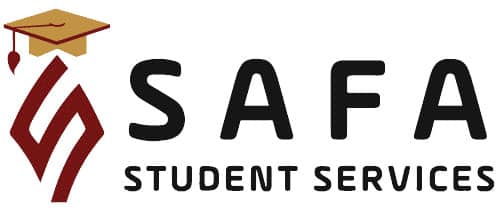Top 7 Financial Specializations to Study in Turkey


جدول المحتويات
Turkey is an important economic country located in a geographically strategic area that connects the East and the West. Due to this strategic geographical location, Turkish universities focus on teaching the best and most in-demand financial specializations in the global economy. In this article, we will discuss the importance of these specializations and their career paths after graduation to assist students who are interested in studying financial specializations in Turkey in choosing the most suitable specialization for them. Let’s get started.
Studying Financial Specializations in Turkey
Turkey represents an important economic environment among the world’s countries, resulting in numerous prestigious job opportunities in the field of financial business. Turkey is home to major international banks, insurance institutions, investment funds, securities trading companies, and global financial consulting firms. Thanks to this economic diversity, various financial specializations can be studied at Turkish universities, providing students with diverse opportunities for learning and professional development.
Financial specializations in Turkey encompass a wide range of fields such as finance, banking, insurance, risk management, and financial data analysis. Students studying these specializations acquire modern financial concepts, tools, and the necessary skills to deal with financial challenges in institutions and societies.
With Turkey’s strong economy and its status as one of the largest economies in the region, students studying financial specializations in Turkey can benefit from the available job opportunities in the country, in addition to international employment opportunities resulting from Turkey’s global financial networks.

Private universities in Turkey that offer financial specializations:
- Medipol University
- Istanbul Aydın University
- İstanbul Gelişim Üniversitesi
- Başkent University
- Maltepe University
- Kadir Has University
- Atılım University
- Işık University
- Yeditepe University
- Özyeğin University
- Okan University
- Bilkent University
- Altınbaş Üniversitesi
- Bahçeşehir University
How to Get Your University Admission in Turkish Private Universities?
- Payment of the university application fee.
- Proficiency certificate in the language.
- In the case of studying in English, passing the TOEFL or IELTS language test with a score determined by the university is required.
- In the case of studying in Turkish, passing the TOMER Turkish language test or attending a preparatory year is required.
You can Register with Safa to study in Turkey now and get your acceptance easily. Safa your Friendly Companion in your Education 🎓 WhatsApp

Required Documents:
To enroll in one of the private universities in Turkey, there are several required documents that the student must submit before sending the university application. These files and documents can be submitted in PDF or JPG format during the initial registration phase for the student to obtain preliminary acceptance from the university. These documents vary depending on the academic level, whether it’s undergraduate or graduate studies, but some documents are common to both levels. The necessary documents for application are as follows:
For undergraduate and institute students:
- Valid passport.
- Recent passport-sized photo (white background).
- Copy of high school diploma.
- Student’s email address.
For graduate students:
- Bachelor’s degree certificate for graduate students.
- Translated copy of the transcript in English or Turkish.
- Receipt of payment for the application fee.
- Recommendation letters (Master’s, Ph.D.).
The Best 7 Financial Specializations in Turkey
Based on the academic program students pursue at the university and the career path they plan to pursue, several financial specializations can be studied. Each specialization has its unique career prospects, the subjects taught, and common subjects taught across all specializations. The best 7 financial specializations in Turkey are as follows:
1. Investment:
Studying investment is an interesting aspect of finance, as it is important for individuals and companies alike. Specialists in this field understand how to evaluate potential returns and risks associated with investments. Students studying investment can qualify to work as investment experts, providing advice to individuals on the best time to buy real estate or invest in the stock market based on their financial situation. Although investments may seem straightforward, this field is influenced by various variables and requires complex knowledge.

2. International Finance:
When choosing financial specializations in Turkey, international finance is one of the best choices. It is a branch of economics that studies the dynamics of exchange rates, foreign investments, and their impact on international trade. It also covers international projects, international investments, capital flows, and trade deficits. Students learn about global trade and market trends to be able to assist future clients in other countries and regions.
3. Cash Flow Management:
Cash flow refers to the movement of money into or out of business activities, projects, or financial products. It is usually measured over a specific period. Cash flow management is one of the most flexible financial specializations, as it can be defined by users according to their specific purposes. It can refer to past actual cash flows or expected future cash flows. It can also refer to the total cash flows for all stakeholders. Other terms for this specialization include “net cash flow,” “operating cash flow,” and “free cash flow.”

Importance of Cash Flow Measurement:
- To determine the value or rate of return on investment for a project.
- To identify liquidity problems in business operations.
- As an alternative measure to profitability in business operations.
- To evaluate the quality of income generated from accrual accounting.
- To assess the risks of financial products.
4. Personal Finance:
Specialized experts in personal finance provide individuals with advice focusing on their costs, bills, income, and goals. Students interested in this field can enroll in one of the mentioned Turkish universities that teach various financial disciplines using the best teaching tools and provide training opportunities for students in global companies within Turkey.
5. Financial Risk Management:
Financial risk management is a branch of various financial disciplines that involves studying, analyzing, and addressing potential financial risks faced by individuals and companies. Students learn how to protect the economic value of a company using financial tools and manage exposure to risks such as operational risks, credit risks, market risks, foreign exchange risks, volatility risks, liquidity risks, inflation risks, business risks, legal risks, reputation risks, and other expected financial risks.

Financial risk management requires identifying, measuring, and planning for these risks. It can be qualitative or quantitative, focusing on when and how precautions are taken using financial tools to manage costly risk exposures.
6. Financial Analysis:
When studying financial analysis, students learn how to test and analyze investment methods and the use of funds in companies, as well as study the efficiency and profits resulting from business operations. This type of analysis focuses on studying the financial information of a specific institution or project to understand cash flows, profits, and expenses. It also aims to analyze financial statements and other financial reports to gain a comprehensive insight into the financial position and performance of the institution.
Types of Financial Analysis:
- Financial statement analysis: This involves analyzing financial statements such as income statements, balance sheets, and cash flow statements to understand a company’s performance and evaluate its ability to achieve profits and manage cash flows.
- Financial ratio analysis: This involves using a range of financial ratios and indicators to measure a company’s performance and evaluate its financial health. Some of these ratios include profitability ratios, liquidity ratios, debt ratios, and return on investment ratios.
- Financial scenario analysis: This branch of financial analysis involves studying potential scenarios and estimating their impact on a company’s financial results. It helps in identifying financial risks and guiding strategic decision-making.
- Industry and competitive analysis: This is an essential part of financial analysis as it involves studying market factors, competition, and general industry trends. It helps in understanding a company’s position in the market and identifying growth opportunities and challenges.
3. Financial Institutions focused on Corporations:
As a finance professional, you can specialize in financial institutions focused on corporations, allowing you to deal with the management of financial institutions, including banks, credit unions, insurance companies, savings and loan associations, and lending companies. Students interested in the banking sector can study this specialization among various financial disciplines. This specialization covers finance modeling, financial accounting, and financial institution management.
finance specialization subjects
When choosing to study a specialization in finance in Turkish universities, a range of subjects from various financial branches and specializations are studied for 4 years, divided into 8 academic semesters. The most important subjects taught include:
- Financial Management
- Cost Accounting
- Financial Institution Accounting
- Managerial Accounting
- Financial Statement Analysis
- Tax Accounting
- Corporate Accounting
- Governmental Accounting
- Auditing
- Internal Auditing
- International Accounting Standards
- Macroeconomics and Microeconomics
- Statistics
- Computerized Accounting Applications

- Principles of Management
- Principles of Macroeconomics
- Principles of Microeconomics
- Principles of Statistics
- Principles of Business Administration
- Principles of Accounting
- Industrial Economics
- Statistical Analysis
- Public Finance
- Macroeconomic Theory
- Microeconomic Theory
- Islamic Economics
- International Trade Theory
- Research Methodology in Economics
- Mathematical Economics
- International Finance
- Financial Economics
- Managerial Economics
- Economic Development
Career Opportunities in Financial Specializations:
- Working in economic and financial markets.
- Working in industrial and commercial companies.
- Working in public and private institutions and banks.
- Financial expert and advisor.
- Working in insurance companies.
- Working in banks.
- Working in the stock exchange.
- Working as an economic analyst.
- Working as a certified accountant.
- Human resource management.
- Working in private and government institutions.
- Academic work and teaching at universities.
- Freelance projects.
In conclusion, we have presented in this article 7 of the best financial specializations taught in Turkish universities. The role of economics and finance in the lives of societies, institutions, and individuals cannot be denied. Given the importance of Turkey as a major economic country, it is an ideal destination for studying this specialization. We are happy to receive inquiries from our students regarding studying in Turkey or obtaining any information related to their university admissions.
Latest News
Related Articles & News
Follow our latest articles

Studying Mechanical Engineering in Turkey 2025: A Pillar of Industry and Innovation
In our modern world, from the engines of the cars that drive us daily to giant electricity-generating turbines and precision...
See More
Studying Artificial Intelligence Engineering in Turkey 2025: Towards a Future Led by Intelligent Machines
In a world experiencing an unprecedented technological revolution, Artificial Intelligence (AI) has become the driving force behind innovation in almost...
See More
Studying Dentistry in Turkey 2025: A Bright Smile for a Promising Future
In a world where health and beauty are increasingly important, dentistry is a medical profession that combines scientific precision with...
See More
Studying Aeronautical Engineering in Turkey 2025: Soar into the skies of innovation
Imagine yourself as part of a team designing the aircraft of the future, a cutting-edge space system, or developing technologies...
See More
Studying Biomedical Engineering in Türkiye 2025: A bridge linking engineering and health
In an era of rapid medical advancement, cutting-edge medical equipment has become the backbone of modern healthcare, from precision diagnostic...
See More
Studying Anesthesiology in Turkey 2025: A vital profession at the heart of healthcare
In every surgical procedure, and in many complex medical operations, the anesthesiologist plays a pivotal role, no less important than...
See More

